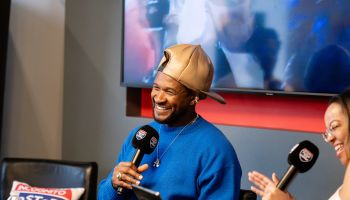When Roy Halladay descended the dugout steps, he looked to his right and saw Rich Dubee conversing with Charlie Manuel. He sat down, stared at the giant PNC Park scoreboard in left field, and saw eight zeroes and two hits for the Pirates. Then he glanced at the Phillies bullpen and saw Jonathan Papelbon stretching.
“I saw what was going on,” Halladay said.
This was a 1-0 game in his favor, 181 days after the last one ended so miserably. Dubee sauntered toward his pitcher in the dugout. “I wasn’t going to fight him,” Halladay said. Carlos Ruiz shook the pitcher’s hand. It was 3:34 p.m. Thursday and Roy Halladay’s day was done less than two hours after the first pitch of the 2012 season.
His right arm carried another opening day, this being a Phillies victory over Pittsburgh in front of the largest crowd to ever watch a game in this scenic ballpark. The Phillies are 1-0, with one run to their name, and that will do.
“It was a tremendous game,” Charlie Manuel said. “We were fortunate to score a run.”
Pittsburgh had two hits, and none after the first inning. Alex Presley flared a Halladay curveball into short center. Jose Tabata willed a swinging bunt up the third-base line. That was it.
Two more Pirates reached on stray Halladay pitches that plunked them. His final pitch, a beauty of a curve waved at by Nate McLouth, was his 92d of the day. He threw fewer in only four of his 2011 starts, so it was reasonable to think Halladay could go for the shutout.
The Phillies opted instead for Jonathan Papelbon, the richest reliever in baseball history, who recorded three outs on 10 pitches. He pumped his first, pointed with his right hand at third baseman Placido Polanco and yelled. Manuel and Dubee’s decision worked.
“I understand at this point,” Halladay said. “A couple weeks from now, I’m going to fight him.”
Halladay was besieged by questions about his mechanics in meaningless Grapefruit League games. His ERA tumbled into the double digits at one point. Just about every person around the Phillies laughed at the idea of invincibility.
Ruiz was one of them. On Wednesday, during the Phillies’ final perfunctory workout, the catcher intently watched Halladay.
“He was ready to go,” Ruiz said. “You could see it in his face.”
When Halladay throws 92 pitches like Thursday’s, it doesn’t matter how little the Phillies hit. All they needed was one run, and it came in the form of a seventh-inning Ruiz sacrifice fly after Ty Wigginton and John Mayberry Jr. hits.
Mayberry doubled into the right field corner, representing the only extra-base hit for either side. Wigginton, not exactly the fleetest of foot, rounded third at full speed with his eyes on third-base coach Juan Samuel.
“If he’d have sent me,” Wigginton said, “we’d have given it a shot.”
Samuel put his hands in the air to stop him.
“I figured we got Carlos Ruiz coming up,” Samuel said, “and he was swinging a hot bat in spring training. Let’s give it a chance.”
The second pitch Erik Bedard threw Ruiz was a belt-high fastball he lined to short right field. Samuel released Wigginton from third. Tabata’s throw was up the first-base line. Wigginton slid into home, sprung up with his arms in the air, and screamed “Woo!”
“I wanted to get it done right there,” Ruiz said. “Score the run for Roy, and I think that’s enough.”
It was. Life without Chase Utley and Ryan Howard will make for low-scoring games, a reality the Phillies encountered last season when the offense went cold without some of its key pieces. That’s a narrative that will dominate this 2012 season, and Thursday could be the blueprint for many victories to come.
Bedard fooled the Phillies with his off-speed control. Only Mayberry and Ruiz had multiple hits. Mayberry’s was well-timed.
In 2 hours and 14 minutes, an anticlimactic opening day had come and gone. Music blared in the visiting clubhouse as some Phillies dressed, others watched video of what just happened, and a few found a TV to see Boston’s ninth-inning stumble against Detroit.
One boring run? So be it.
“Quick games,” Halladay said, “are easier for pitchers to stay in a rhythm.”















